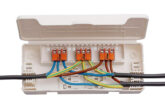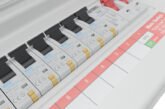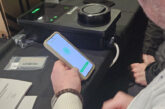
With temporary power systems back in high demand, we put the questions to industry expert, James Eade, to learn more about the qualities required of potential new entrants to the sector and some of the opportunities this particular pathway has presented to him over his career.
Q. Tell us more about yourself and your background in the electrical industry.
Like many people, I started by dabbling in lighting for school plays, but my real technical grounding came from six years with the army – the Royal Electrical & Mechanical Engineers. I learned about electrical systems and temporary power, and took a degree in Mechanical Engineering.
Q. How did your pathway lead you to working in the temporary power systems sector?
It was a combination of my electrical training with the army and my love for theatre. I worked at a couple of theatres and a then a London rental company. After a few years I moved to Wynne Willson Gottelier, a consultancy formed by two brilliant entertainment lighting guys, Peter Wynne Willson and Tony Gottelier. Tony had designed the lighting rigs for some of the world’s best nightclubs, while Peter had started his career lighting Pink Floyd in their early days. I owe them both a lot. There was a range of consultancy work for cruise ship companies, major attractions and live music tours. That experience really put me on the entertainment industry map.
Q. What elements of working in temporary power systems do you enjoy the most?
The variety. I can be working in standards, or visiting a television studio one day, then looking at plans for a new feature film or rock concert the next. It means a lot to me to be promoting good practice in those fields, and to be training and helping people to be the best at what they do.
Q. Tell us about a couple of high-profile events that you’ve worked on and what they involved.
At WWG we worked closely with the production of U2’s PopMart world tour. We developed an automated lighting instrument based on moving mirrors – it was a beast, nick-named ‘The Razor-Head’! That was a ground-breaking tour for various reasons and a great learning experience. We were also involved with Roger Waters, MTV Awards and many other events.
More recently, as Head of Energy for the 2022 Commonwealth Games, I oversaw the supply of all event power to the Games’ various sites. That involved a lot of solar power and battery technologies, and we worked closely with our supplier Aggreko to design efficient hybridised load-on-demand generator systems which ran on hydrogenated vegetable oil.
Q. What sort of skills does an individual require to consider a career in temporary power systems?
Is it a career that a time-served electrician could consider? Absolutely. Once someone properly grasps electrical fundamentals, those basics can be applied in any environment. Yes, there are specific factors and risks involved in temporary installations – particularly in outdoor environments – for which they’ll need proper training, but the same is true of marine, or highways, or aviation, or any other niche of the electrical business. I would hope that people see this as another facet of the business, and another opportunity.
Q. For electricians that may be interested in exploring temporary power systems as a career, what steps would you recommend they take next?
Try to get experience with power rental companies and learn about generators and power distribution equipment – the electrical aspects are quite different to grid supplies, but at least it all plugs together.
Like all electrical specialisms, temporary systems have to be designed properly and safely installed, so compliance with the Electricity at Work Regulations 1989, the IET Wiring Regulations (BS 7671) – and BS 7909, the Temporary Power Standard, are essential. We offer courses that help skilled people to tackle that specialisation.
Q. Aside from your work as a consultant/expert in this sector, you also wear quite a few other hats – can you tell us more about that?
All sorts of hats! I do a lot in standards and training. Through my company I helped to train over 500 people in 2022 alone. More broadly, I chair the British Standards 7909 committee for Temporary Electrical Systems, and I sit on the BS 7671 committee (the IET Regs). I wrote the IET’s guide to BS 7671 and BS 7909, The IET Practitioner’s Guide to Temporary Power Systems and The IET Code of Practice on In-service Inspection and Testing of Electrical Equipment (ISITEE), 5th edition.
I also do some expert witness work, and some writing for the IET’s Wiring Matters magazine. My standards hat also includes work for UK entertainment industry associations such as PLASA (the Professional Lighting and Sound Association) and ABTT (the Association of British Theatre Technicians).
Q. Why is the correct training and knowledge base so important for those professionals that may want to consider a career in temporary power systems?
Timescales tend to be tight, so the work is necessarily fast paced: you have to really know your stuff. In entertainment, the curtain has to go up at the time stated on the ticket: there’s no chance of being late. At the Commonwealth Games, for example, I was told at 1pm that none of the power worked on the main stage for the closing ceremony as the residual current monitors kept tripping.
The doors were due to open to the public at 5pm – and rehearsals had to happen before then. Often you have to draw on every bit of practical experience and theory to identify and resolve issues – and quickly!
Q. What final message would you have for professionals who may be unsure about exploring a career in temporary power systems?
I’d say go for it! I think it’s an extremely satisfying way of life. Granted, it’s rarely 9 to 5, but if you like teamwork, creativity and seeing the fruits of your labours, this has to be worth a look. The end result is often something wonderful.
Find out more about in-person training courses and dates on offer from James Eade here











